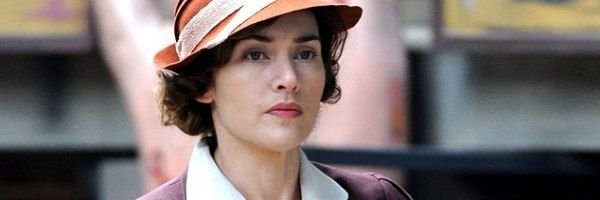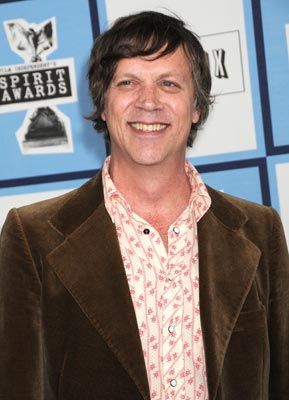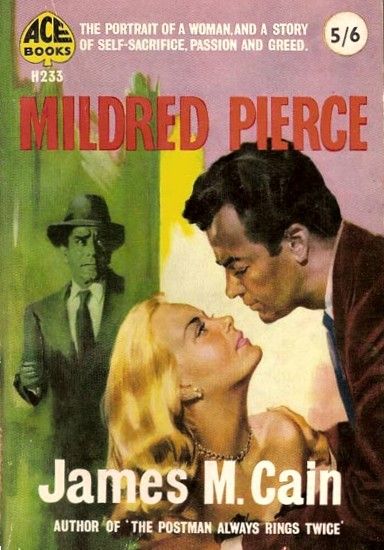The five-part HBO mini-series Mildred Pierce, based on James M. Cain’s 1941 novel and premiering March 27th, tells the epic story of a proud single mother struggling to earn her daughter’s love during the Great Depression in middle-class Los Angeles. Mildred Pierce (Kate Winslet) is a uniquely independent woman and her story is an intimate portrait of a new divorcee, struggling to carve out a new life for herself and her daughter, Veda (Evan Rachel Wood), for whom she is unreasonably devoted.
During a recent interview to promote the intriguing new project, actress Kate Winslet and co-writer/director/executive producer Todd Haynes talked about their approach to this complex and nuanced work, the marathon experience of bringing this story to life, working in television for the first time, and steering clear of the original film, in developing the portrayal of this woman. Check out what they had to say after the jump:
Question: When people see things from this era and remember the movies from this era, they expect a bigger, almost operatic style of acting and film. Is that reflected here, or is this more about the larger emotion and the larger look than usual?
TODD HAYNES: I’m a great admirer of the Michael Curtiz original film, but I was so startled and surprised by reading the James M. Cain novel, which I had never read until ‘08, right as the financial markets were tumbling in the United States. I loved how incredibly frank it was and how much he was really purposefully trying to not do a film noir, as he’d come to be known for in The Postman Always Rings Twice and Double Indemnity, but instead did a realistic portrait of a mother-daughter relationship, set in the 10-year span of the Depression in Los Angeles. The frankness with which he dealt with Mildred’s sexuality, her relationship with Monty, and the complexity between the two women characters – mother and daughter – was so much more nuanced, and so much more relevant and relatable, than I ever truly felt about the original film, which is a beautifully, stylized piece of Hollywood operatic, noir filmmaking. This felt modern and contemporary and approachable, and that’s one of the reasons why I wanted to take it on.
KATE WINSLET: It was never a conscious choice to not make any of the emotions bigger. We didn’t all sit around a table and have a conversation about making it contemporary and modern. That wasn’t a conscious choice. I think that for us, certainly as actors, the priority was really just to capture the horrible honesty that does appear, at certain moments, in this story. They’re very real people, experiencing very real emotions. The most important thing for us, in terms of the ones who were conveying this story, was to simply be as pure and as honest as possible, and as true to the book as possible as well, because it is such a spectacular piece of writing.
Todd, what was your approach to this material?
HAYNES: When I did a film last that dealt with a woman’s story primarily, for Far From Heaven, I was very interested in the stylization of ‘50s American filmmaking tropes and wanted to use that in various ways in my look back at Douglas Sirk style of filmmaking. This film was quite different in motivation, and I also felt it was different because of the venue being television and being in a long, dramatic form instead of a feature film and what its audience for a feature film might be, but it made me think a lot about the great period of the American revisionist film in the ‘70s, where a lot of genre filmmaking was getting re-examined by younger filmmakers, and these filmmakers were bringing a real sense of contemporary, sophisticated, nuanced performances to what were otherwise classy genre films, like The Godfather, The Exorcist or Chinatown, and there are many, many others from that period. All the creative people involved in Mildred looked closely at a lot of those films because we were still dealing with a piece of classic American popular fiction and wanted to honor that and honor its bigger-than-life aspects, but at the same time, bring elements out of it that might have been overlooked in the original production that was so codified and stylized that you missed the real human nuances and conditions that made it feel incredibly modern and relevant, and I think we did accomplish that.
Todd, does working in television compare to the independent film world at all?
HAYNES: It’s nothing close to this. This was a marathon experience. It was great to share it with film people because it was new for all of us. It was new for Kate [Winslet], it was new for Evan [Rachel Wood] and for Guy [Pearce], it was new for my D.P. Ed Lachman, who I had worked with on two films prior to that, it was new to Mark Friedberg, my production designer, who I worked with before. We really walked into it with the exacting kind of demands that we bring to any project that we do, but there was just so much more volume and a very tight schedule to produce it all. It required total immersion, which is also true for Kate’s experience.
Did either of you have any reservations about working in television for the first time?
HAYNES: No, I’m a great admirer, fan and consumer of television. I love serial drama. I have been a major fan of HBO’s series for many years, and I have been interested in the whole challenge of doing a long-form piece of dramatic adaptation that lends itself to an extended format like this. It was exciting. It was a challenge. My co-writer, Jon Raymond, and I had to balance out all this material in a five-hour spectrum, where you have to have endings for each of these, but that makes you want to see the next one and makes you curious and gives you just enough information to propel you further. It was great. It was a real creative challenge.
WINSLET: It never occurred to me really, beyond the moment of actually receiving those five scripts, that “Wow, this is television, therefore it’s going to be different somehow.” Sure, we had more to shoot and we had to work a lot faster, but the determination and the level of focus that we all had to have, because we were limited, was so much more intense, honestly, than certainly any film I’ve been a part of. Film, schmilm. I’m telling you, television is so much harder. It didn’t affect the work ethic, in any really obvious ways, other than we just simply had more story to tell, which was a luxury, and less time in which to work towards that goal. It just meant we were hyper-focused, every single day. The crew was spectacular and absolutely rolled with it, and it was a really, truly collaborative and an extraordinary experience, totally team-led by Todd.
HAYNES: All these actors had to prepare so much for their roles, and then had to prepare musically as well.
Did this process make you wonder why it takes so long to make a feature film?
WINSLET: It really depends on the filmmaker, actually, and the pace at which the filmmaker works.
HAYNES: I think that’s true, but I think every project is different. Titanic needed the time it took to get made and to be that kind of epic, spectacle filmmaking, incorporating the technology into it. It’s a painstaking procedure and every project sets up its own unique demands, challenges and constraints. I do believe in constraints as being creatively conducive and inspiring. I’ve never really worked in any condition that didn’t have constraints of some kind or another. It’s not like feature filmmaking or independent filmmaking is easy and languorous, by any stretch of the imagination. But, there’s no way we could have done this without the most extraordinary collection of actors, led by Kate Winslet, and a fantastically committed and expert team. The HBO experience was something I have never had. It was like working with this solid base – this studio – headed by incredibly smart people, who believed in what we were doing, and the complexity and the ambiguities in the characters, and the subtly in the characters, and taking things further than you might have dared ask a financier on another project to go. So, the overall experience was so well-supported and well-organized, and with just such great creative talent around me. The failure was totally up to me to produce. It was up to me to screw it up.
WINSLET: I really felt the incredible support of HBO, constantly and daily, and that really did help us because we did have a lot to do. There was so much to get through, and it was incredibly intense for all of us, but I did feel that we had this glorious safety net just willing us along and gently guiding. They were absolutely there for us, and it really did make a difference to feel that support, I have to say.
In the book, Mildred is so in love with her daughter and is so desperate for her approval? What was it like to play that?
WINSLET: I think one of the things that really fascinated me the most, when I read the script, was this unbelievably intense relationship between Mildred and Veda (Evan Rachel Wood), which is based on just pure love and adoration for this child. It does teeter on the brink of obsession, absolutely without question. Every mother-daughter relationship is complex and complicated, for its own different set of reasons, but this one was just something else because Mildred was in a position constantly, where she didn’t know whether to love her or kill her, and it was almost as though the amount that she did love her was suffocating her all the more, all the time. Mildred’s need for approval is something that I think every mother does feel from their child, whether it’s a daughter or a son. Veda was this determined, defiant creature that was so out of Mildred’s grasp. Mildred has admiration for her, and also the desire that she could maybe have been that person. IN Veda, Mildred saw her own disappointments. Little pieces of Mildred kept dying, every time she saw how brilliant and wonderful and rich Veda was, and how much more extraordinary her life could become. All she could do was love it, encourage it, support it, and want to be a part of it so, so desperately. It’s just crushing. On many levels, they’re extremely normal, maternal responses to any child, but they do get very, very twisted and disturbing, as the story goes along. It was utterly compelling to me because I can see how that can happen to any parent. I really can.
HAYNES: The success of Veda’s musical career and her innate talents turn her into a tawdry torch singer in the last act of Mildred Pierce, the film, which (author) James M. Cain despised. He claimed that it completely dispersed all of the dramatic tensions between mother and daughter. What’s really hard is that, when all of the dreams and aspirations that you wish for your child come true, you guarantee losing them as a result. So, the oceans part between Veda and Mildred, for all the reasons Mildred wanted and coveted and worked so hard to make. That makes a true tragedy and a much more interesting story.
Kate, did you see the original Mildred Pierce at all, or did you intentionally decide not to?
WINSLET: Todd said to me, “How do you feel? Do you want to see it? What’s your feeling about it?” I hadn’t seen it, and I really wasn’t sure if I should. I didn’t know what to do. When you’re playing Mildred Pierce, and you know that someone utterly extraordinary has played that role before, it’s a really fine line. What do you do? So, Todd said to me, “Look, if you do want to see it, that’s completely your choice. You should know that the film is very, very different to the novel, and it’s very different to what we’re going to do.” So, I saw the first five minutes and I thought, “You know what? I actually shouldn’t watch this.” I wouldn’t have ever been able to unsee it. And, I also knew that I had to honor the book. I had to be very true to the Mildred Pierce that is in that brilliant novel, and she meant something different to me, within the context of the way that Todd had scripted this. I could feel, almost immediately, watching Joan Crawford’s brilliant performance, that what I was working towards with Todd was just something different. It was not cleverer or better, but it was just simply a different character, and I knew I just hang onto my instincts about who she meant to us.
Is Veda an indictment against single motherhood?
HAYNES: It’s so compelling and complex in the book, the sort of parallel tracks of exploration that he’s looking at. One is the mother-daughter dynamic, and the other is class in America and how, in both cases, sometimes the most natural thing in the world can turn against itself and create irreconcilable conflict. The mother-daughter relationship is one where the mother wants to always maintain closeness to her daughter, and the daughter needs to differentiate herself and individuate and separate. Those are two absolutely polar opposite urges that get played out, in many different ways, in many different homes, but they’re always there, to some degree. It’s conflict built into the most natural relationship in the world that really has no simple resolution. Similarly, I think he describes the yearning of the American middle class toward the aspirations of mobility and ascension, and talks about them both as the most natural thing in the world. You want everything for your kids that you didn’t have, but that that very desire can pollute and corrupt the good, basic American pluckiness, resourcefulness and down-to-earthness that we like to pride ourselves with, and result in aspirations of wealth and high culture. It might be played out in different ways, in today’s America, than it was in the ‘30s, where classical music and high culture were avenues up and out of middle-class suburban identity. But, I think we see the extremes and the abuses on both sides. What’s really beautiful about it is that there’s no simple answer and these two conditions interact with each other throughout the story, in all of these interesting ways. It’s a really brilliant novel, in that way.
MILDRED PIERCE premieres on HBO on March 27th



